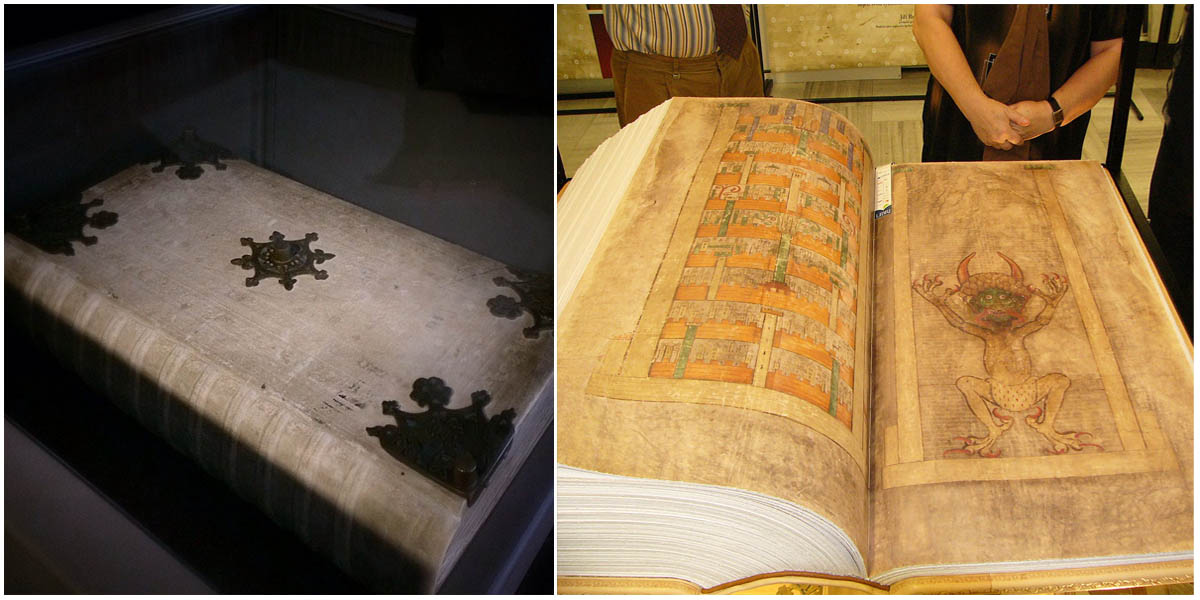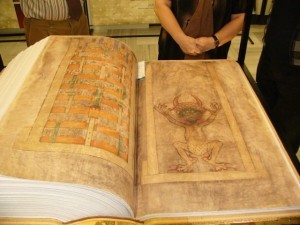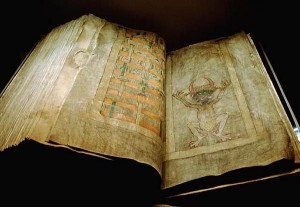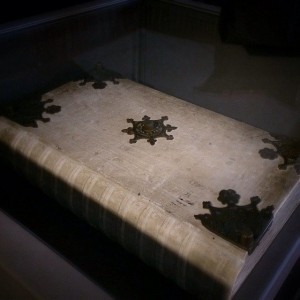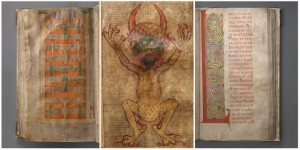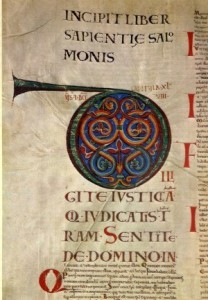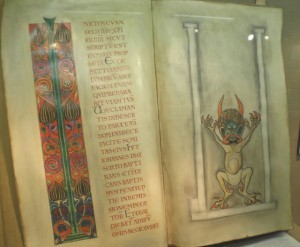The Codex Gigas or The Devil’s Bible is the largest 13th-century manuscript in the world. It is also one of the strangest manuscripts because it contains a large, full page portrait of the Devil.
It is so large that it takes at least two people to lift it and it is said to have taken more than 160 animal skins to make it.
(The Codex Gigas contains five long texts as well as a complete Bible)
The codex is 92cm tall, 50 cm wide, 22 cm thick, and weighs 74,8 kg. It has 620 pages and is bound in a leather covered wooden folder that is decorated with metal shaped designs. It contains a number of parts as well as many historical documents all written in Latin.
The complete Vulgate Latin translation of the bible, The Old and New Testaments, The standard textbook for teaching medicine in the Middle Ages known as Ars medicinae, the Chronicle of the Bohemians, a calendar, two works of Josephus Flavius and more.
(The manuscript is enclosed by thick wooden boards covered with white skin)
It is thought to have been created in the Benedictine monastery of Podlažice in Bohemia (Czech Republic). It is believed that the creator of the Codex was the Benedictine monk Herman the Recluse who was a resident of the monastery.
(Stories and legends say that the Codex Gigas brought disaster or illness on whoever possessed it during the history)
According to legend, the monk produced the manuscript in just one night with the devil’s help. Because he broke his monastic vows he promised to create a book to glorify the monastery forever, but when he became sure that he could not complete this task alone he prayed to Lucifer to help him in exchange for his soul.
(The Codex is richly illuminated throughout)
The Codex Gigas was kept in the library of a monastery in Broumov from 1477 to 1593, then, in 1594, it was taken to Prague to form a part of the collections of the Emperor Rudolf II.
At the end of the Thirty Years’ War in 1648, the entire collection was taken as war booty by the Swedish army.
(Museum maquette of the Codex Gigas)
From 1649 to 2007, the manuscript remained at the Royal Library in Sweden and from 2009 is preserved at the National Library of Sweden in Stockholm as part of the library’s Treasures exhibit, on display for the general public.
Ask me anything
Explore related questions
